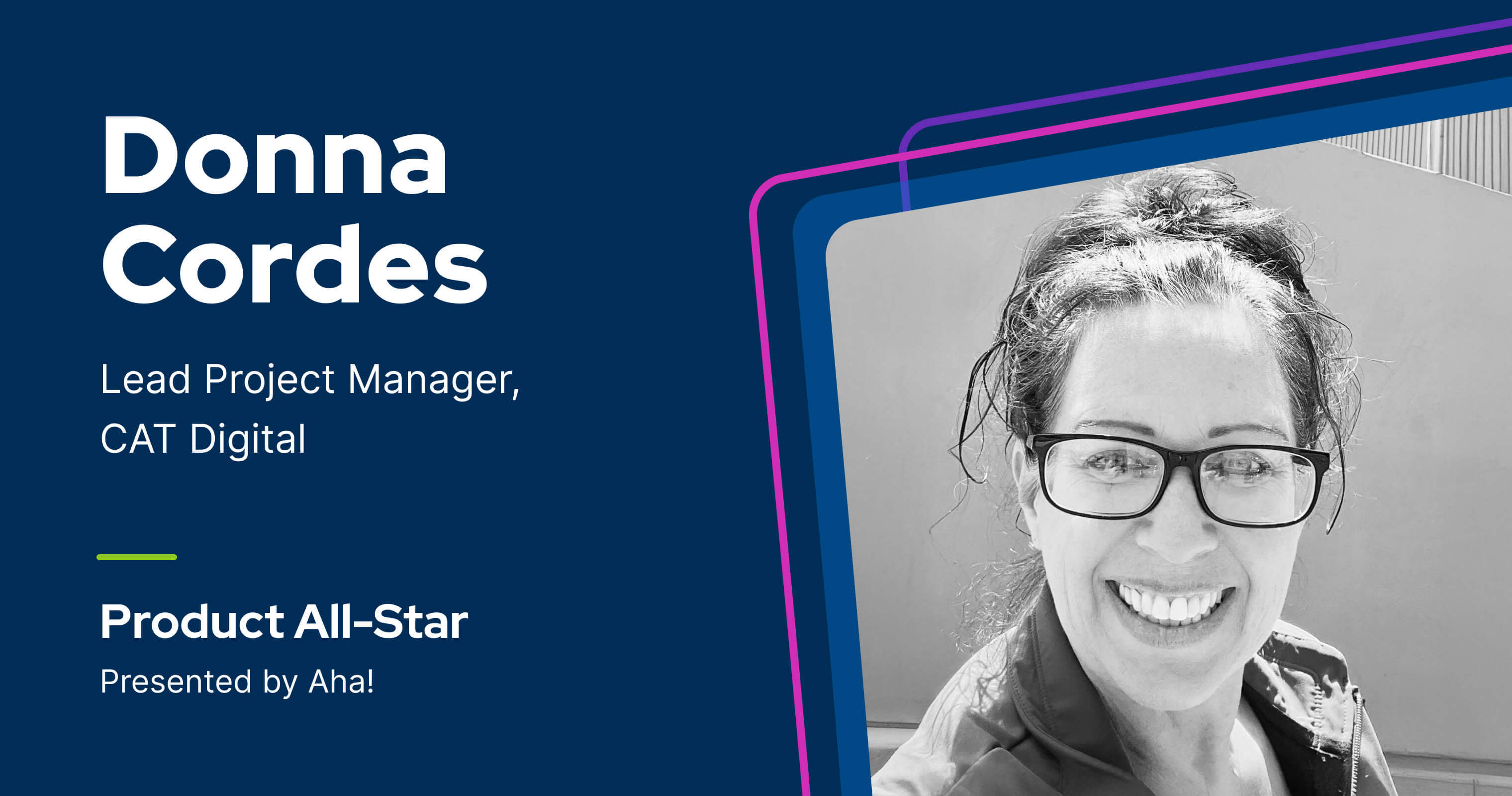
Product managers have the best job: bringing people together to turn ideas into something real. | Photo by Jodi B Photography
The parts of product management no one warns you about
Product management attracts people who want to build something useful. The role promises real progress: You set strategy, guide what gets built, and connect teams around shared goals. That part is true, and it is exactly as rewarding as it sounds.
What is less obvious is how much of your day involves questions without clear answers. A sales leader asks if you can ship a feature by quarter-end when engineering needs six more weeks. Two different types of customers need different things, and building for one means the other waits. You spend Tuesday aligning three teams on priorities, then Wednesday reconsidering those same priorities when new information arrives.
This is not a sign that something is wrong. This is the job — and for many PMs, it is exactly what makes the role worth doing.
Understanding what it means to be a product manager starts with the fundamentals. At its core, the role is about connecting discovery to delivery and creating value for customers and the business. That means you:
Set strategy: Define where the product is headed and why it matters. Connect the vision to company goals so every decision supports a shared purpose.
Discover customer needs: Talk to users, gather feedback, and explore ideas. Then, turn insights into opportunities worth pursuing.
Plan what to build: Prioritize features and sketch out your roadmap. Balance near-term opportunities with long-term goals to keep progress steady and meaningful.
Showcase the roadmap: Share the roadmap to align your teammates and stakeholders. Explain the reasoning behind your choices and invite thoughtful feedback before work begins.
Deliver with precision: Bring engineering, design, marketing, and leadership together. Translate needs, clarify decisions, and keep everyone pointed toward the same outcome.
Analyze and adapt: Review results, measure adoption, and learn from what shipped. Use data and customer insights to refine your roadmap and improve what comes next.
These fundamentals form a solid foundation. But they miss what gives the role its texture: the quick pivots when priorities shift, the questions that force you to defend your thinking, the decisions you make when two good options conflict.
Product managers who thrive lean into this complexity.
Whether you are new to product management or have led products for years, it helps to hear how others navigate the job. This blog shares what surprised some of our product managers and Customer Success team (all former PMs) once they were actually in the role.
The invisible work of product management
Much of product management happens between the planned milestones. You clarify a requirement until it clicks for engineering, reframe feedback so it sparks the right conversation, and answer the same questions multiple times as understanding spreads across teams.
None of this appears in release notes, but it determines whether everything else succeeds.
When we asked our teammates about their experiences, here is what they had to say:
James Harris, Aha! Discovery Product Lead: "What surprised me most about being a product manager is the 'always on' nature of the position — all of these steps have to happen very quickly, and sometimes even simultaneously. There is less structure. And that is a necessity for strong performance."
Kelly Sebes, Group Manager, Product Management: "PMs often serve as the buffer between teams, smoothing tension, translating feedback, and making sure everyone feels heard. A PM can have an enormous impact on the happiness of all the teams they work with. It's not easily measurable work — but it's what holds everything together."
Max Robbins, Product Concierge Manager: "People will ask you questions ALL THE TIME. They never end, and the same question may come up again and again. Be ready for it — it builds trust when you stay responsive."
Related:
Small wins carry unexpected weight
PMs often remember small fixes more fondly than major launches. A bug that frustrated customers for months gets fixed, and the gratitude is immediate. A shortcut gets added to save someone time every day, and you hear about it for weeks. These changes may look minor on a roadmap — but the responses they generate can surprise you.
Here are a few examples:
Maria Plotkina, Product Success Manager: "I NEVER got as much unprompted positive feedback as when we would fix a tiny (but pervasive) bug or add a new shortcut to a menu to an often-used page."
Mike Lowery, Senior Product Manager: "Big releases are great, but adding a simple change that makes someone's day really makes me happy. I never really thought about it that way until recently!"
Kelly: "An engineer once told me that their favorite memory from the past year was when I shared adoption and usage metrics for a feature they just delivered. Moments like that remind me why celebrating wins, no matter how small, is essential — not just for motivation, but also for culture."
Related:
Learning when to say 'no' as a PM
Learning to say no is essential, but knowing how to respond to requests takes longer to develop. Sometimes you say no to protect the roadmap. Sometimes you say yes to something small because it matters more than the plan suggests.
And sometimes the most honest answer is that you are still deciding. That clarity serves everyone better than a forced commitment.
Kelly: "Saying 'no' gracefully is more important than having the best ideas. You'll drown in requests if you don't learn to protect the roadmap and the team. A well-explained 'no' often leads to more trust and better focus for everyone involved."
Maria: "One of my former products was bogged down with constant requests we said yes to that weren't truly impactful. It was a learning curve to get back to a point where I was comfortable saying yes to minor, but fun improvements."
Terri Salie, Product Evaluation Manager: "I learned that saying 'we're still figuring this out' is OK — even powerful. Admitting uncertainty builds trust and opens collaboration."
Related:
Misconceptions about product management persist
Some widely held beliefs about product management sound convincing until you test them in practice. They influence how others see the role and how PMs measure their own success — sometimes in ways that create unnecessary pressure or limit what feels possible.
Hear from the team:
Mike: "PMs are not rulers of the product. That leads to autocratic thinking and echo chambers where your voice is the only thing you hear."
Nathaniel Collum, Group Manager, Product Management: "It is a myth that product managers should always be customer-driven. Not all customer feedback should dictate the roadmap. You'll never innovate by only building what is asked of you."
Maria: "Aside from certain companies with particular hiring criteria, you do not need an MBA or a business background to be successful in this role. Some of the best PMs I've known were subject experts or had strong product-adjacent experience before they made the jump."
Related:
Few roles stretch you like product management, and few are as fulfilling.
We loved hearing these reflections from our team, and it made us curious about the broader PM community as well. So we asked folks on LinkedIn to share their own stories. You can check out their answers here — and add yours to the mix.
Product management is a shared journey defined by small moments of learning and connection. We hope these stories remind you that the work you do each day matters even more than you might realize.
FAQs about being a product manager
What does a product manager do day to day?
No two days look the same, and that variety is part of what makes the job so engaging. You might start the morning reviewing customer feedback, spend the afternoon refining the roadmap with engineering, and end the day sharing progress with stakeholders. Much of the work happens through conversations and strategic decisions that keep everyone moving in the same direction.
Related: What are a product manager's daily responsibilities?
What skills matter most for long-term success as a PM?
Strong product managers balance strategy with delivery. Judgment helps weigh trade-offs, communication keeps teams aligned, and resilience carries you through ambiguity. Tools and frameworks change, but those core skills endure.
Related: 10 skills to succeed as a product manager
Why do product managers say no so often?
Because focus is everything. Requests never stop coming in from customers, leadership, and teammates. If you say yes to everything, the roadmap becomes a wish list and the strategy loses meaning. Saying no helps protect the team's effort and ensures the work you do say yes to delivers impact.
Related: How product managers defeat feature creep
How do PMs measure success if so many wins are invisible?
Not everything a PM does can be captured in metrics, but measurable outcomes still matter. PMs look at adoption, usage, retention, and customer satisfaction, then connect those results back to the goals they set at the start. Even when the contributions are less visible, success means the product is advancing the strategy and the team is proud of what they delivered.
Related: Activity vs. achievement in product management
What is the hardest part of being a product manager?
Balancing competing priorities. You are constantly weighing trade-offs between features and deadlines, customer requests and company goals, or short-term fixes and long-term strategy. It can be challenging, but it is also what makes the role meaningful. The best PMs learn to find energy in that tension — using it to clarify priorities and rally the team around the product vision.
Related: What is product vision?
Do you need an MBA to be a product manager?
No. While an MBA can help you understand business fundamentals, it is not a requirement for success in product management. Many great PMs come from engineering, design, marketing, or customer-facing roles. What matters most is curiosity, empathy, and the ability to connect business goals with customer value. Diverse backgrounds make product teams stronger.
Related: How to become a product manager




